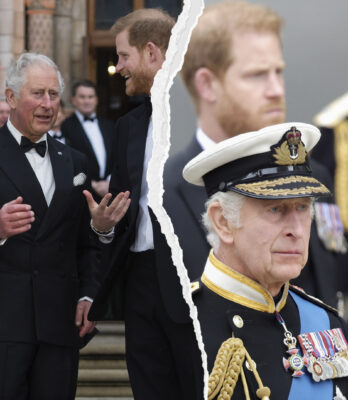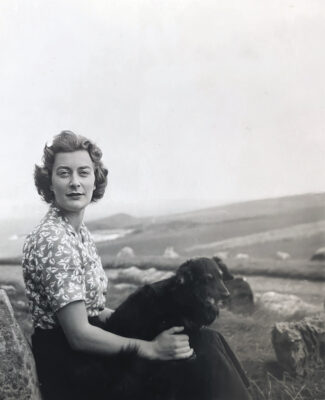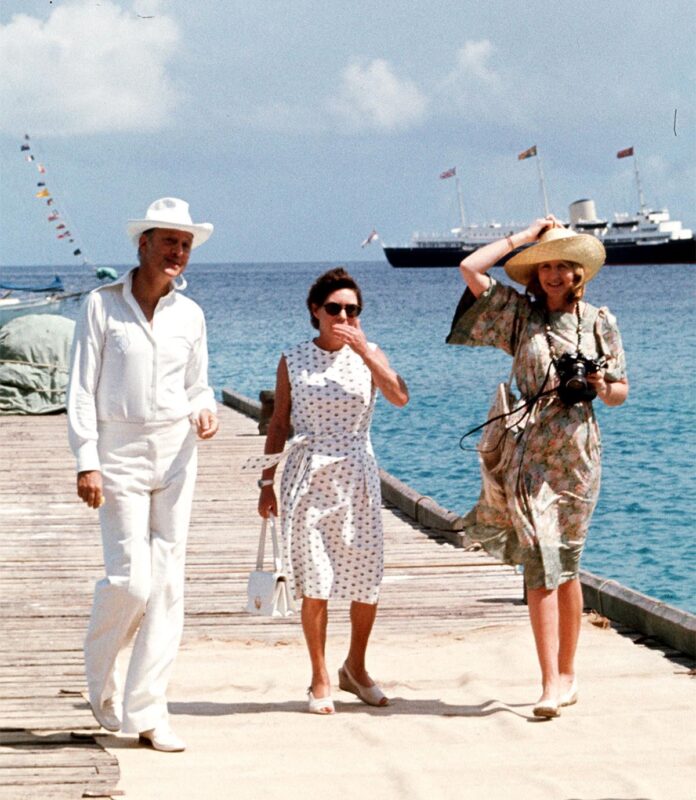
The Royals
Margaret's Rock
Princess Margaret’s lady-in-waiting Lady Anne Glenconner dishes on the royal family, her life in Mustique, and why she hopes to get invited to King Charles’ coronation.
Last month, The 92nd Street Y presented a lively conversation between Tina Brown and lady-in-waiting Lady Anne Glenconner. Digital Party listened in to bring you some of the highlights, condensed and edited for clarity. Watch the full interview here.
Tina Brown is an award-winning journalist, editor, and best-selling author who has been editor-in-chief of Tatler, Vanity Fair and The New Yorker; she was made a Commander of the Order of the British Empire by The Queen for her services to journalism. The Vanity Fair Diaries was chosen as one of the best books of 2017. Brown also wrote The Diana Chronicles, a biography of the Princess of Wales; her follow up, The Palace Papers, was named one of the New York Times’ 100 Most notable books of 2022.
Lady Anne Glenconner was a maid of honor at Queen Elizabeth’s coronation 70 years ago, and later served as lady-in-waiting to Princess Margaret, accompanying her on foreign tours and state occasions for 30 years. Glenconner and her husband, Colin, transformed the Caribbean island of Mustique, granting a plot of land to Princess Margaret, who built her favorite home there.
Glenconner is a novelist and New York Times bestselling author for her memoir Lady in Waiting. Her latest book is Whatever Next? Lessons from an Unexpected Life.
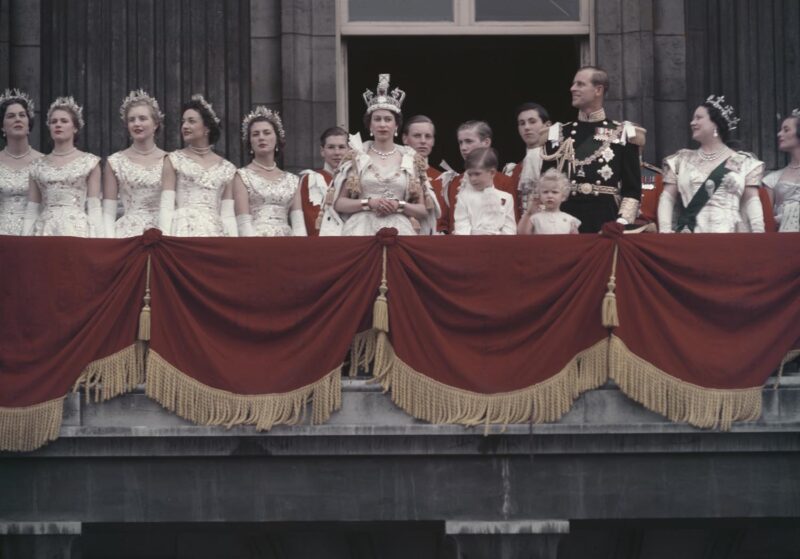
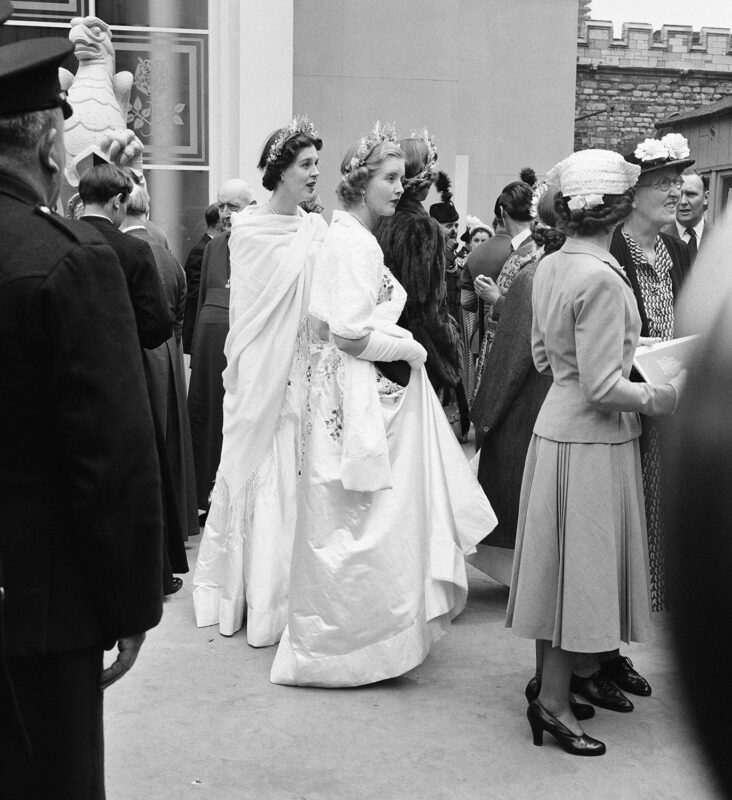
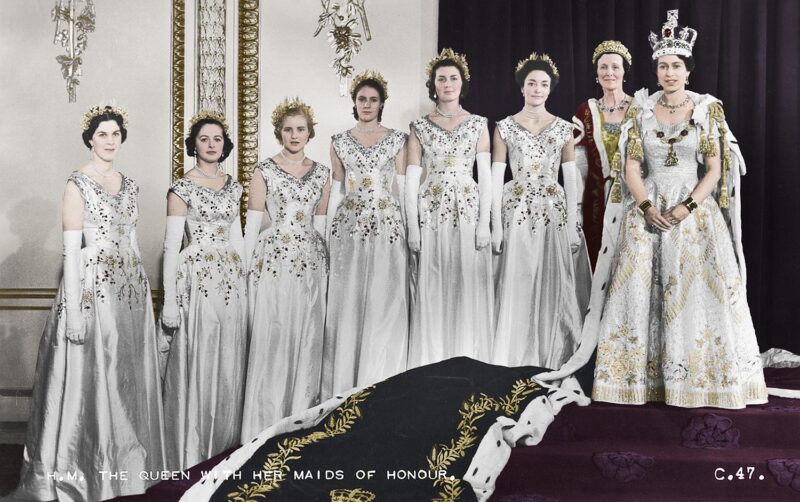
Tina Brown: So, we’ve got another coronation coming up. It’s incredible, the first one since that one that you remember 70 years ago. May 6th. I understand you’ve dropped a big hint to Charles that you would like an invitation!
Lady Anne Glenconner: King Charles has always been a friend because my mother was a lady-in-waiting to The Queen. The Queen had never been to school, so she had never had any childhood diseases. So, when Prince Charles had them he was always sent up to my home, and my mother looked after him. He was sort of like a younger brother in a way, because I had no brothers.
He always loved coming to Holkham [the 18th-century stately home where Glenconner grew up]. I found a wonderful letter that he wrote to my mother the other day. “Dear Elizabeth. Thank you so much for allowing me to drive your Jag and van” (because my mother had a van for the pottery).
And my father taught him fishing for eels. I had a talk with Charles the other day. And I said, “Do you remember catching eels with my father?” And he said, “Yes, I remember that. But the most awful thing I’ll never forget was your father said, ‘They’re delicious to eat. Come down to the kitchen and I’ll show you how to cook them.’” You cut eels up. They put them in the pan and, of course, they immediately jumped out. All the bits . . . because that’s what eels do.
I know him very well; I spent New Year at Sandringham with them. I thought, “Well, I’m 90, I’m just going to go for it.” So, I said to him, “I’m going to be a bit cheeky. I’m going to ask to come to your coronation. I really want to come.” And he didn’t actually say yes, but he wrote something down on a pad of paper. So I’m hoping to get my invitation!
I’m the only person probably now still alive. Two of the maids of honor have died, sadly. Two are not very well. There’s Rosie Churchill, and me. And one or two pages. And there’s a bishop who was a choir boy, but there’s nobody else who had taken part in one coronation and I’d very much like to go.
TB: You’re also very good friends with Queen Camilla, the Queen consort. Did you ever think you would see the day when the former Mrs. Camilla Parker Bowles would be crowned queen?
Lady AG: Well, never. I mean, I knew her when she was young. She was just lovely, very relaxed, always smoking away and not very tidy. She was just lovely and fun.
TB: She has been sort of flawless in the role from the moment she married Charles—for 17 or 18 years.
I just want to talk just a bit about Holkham.
Lady AG: I don’t know if any of you saw this film, it’s called The Duchess that was taken there.
TB: What was it like to grow up in a place like that?
Lady AG: It was great fun. It is by the sea too. When the Queen and Princess Margaret used to come we often went down to the beach, where we hopefully dug holes for people to fall in but I don’t think anyone ever did!
TB: What I think is particularly great about your books, Anne, is the way that you so vividly paint the constraints and expectations of being born at that time into a very prominent aristocratic family. There’s a great deal of cruelty to those aristocratic norms. There was the rule of primogeniture, which means that a woman couldn’t inherit Holkham. So you were never going to be able to have that house for yourself.
Lady AG: I knew at an early age I wasn’t. I didn’t mind because my father bought me up like a boy. I used to do a lot with him. I worked in the estate office. I knew everybody on the estate—a huge estate. It was 52,000 acres when I was a child.
I did always think it was a bit unfair. And the minute my father died, my mother had to leave in a fortnight. I mean—out!
TB: That’s what I find so cruel. You are literally ejected, aren’t you.
Lady AG: Yes. A huge, rich estate. And the most wonderful things in the house. We had a Leonardo manuscript and every sort of thing. I’ve got two sisters—each of us a big disappointment when we were born. And we got one set of china, divided into three.
TB: And your cousin got it, right?
Lady AG: Yes. He was brought up in South Africa.
TB: So he didn’t even know the house, though. Incredible.
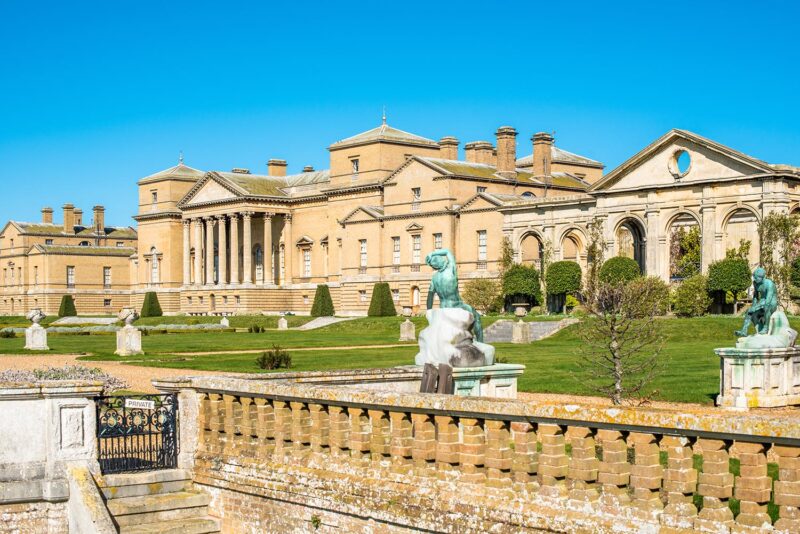
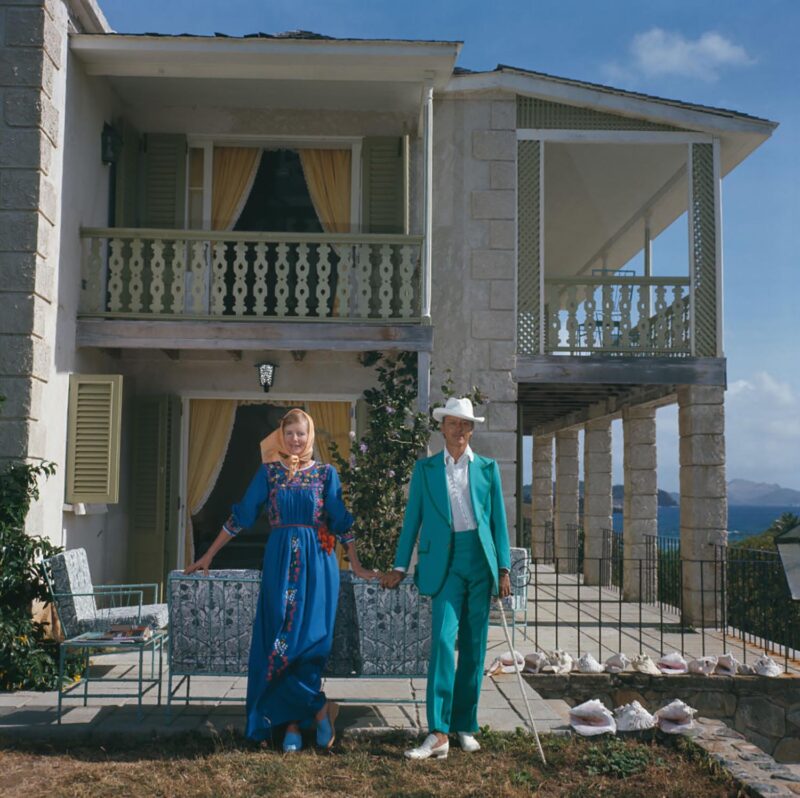
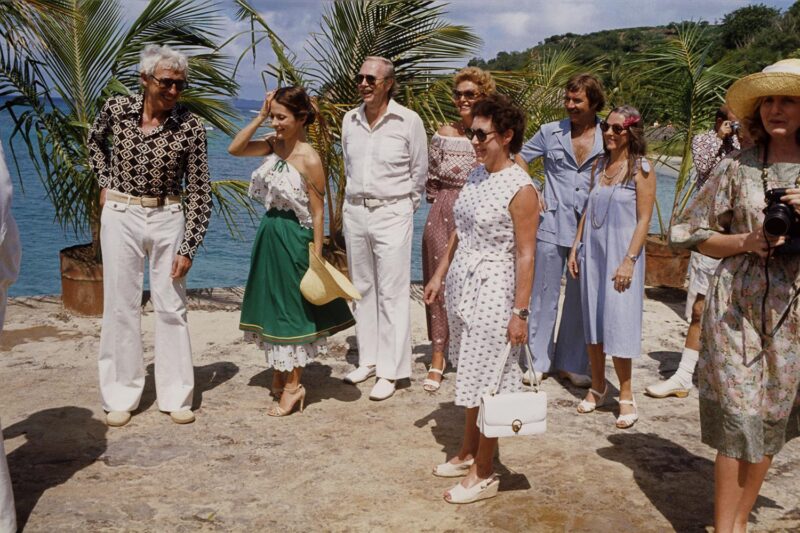
TB: Princess Margaret’s fate was also sealed by primogeniture.
Lady AG: She was a spare!
TB: Do you think she ever felt that she was trapped in a cage herself? It caused her so much unhappiness, being unable to marry the man she loved. Living as a princess without purpose? Would Margaret have left, like Harry, if she’d lived in a different era?
Lady AG: I knew her very, very well, Princess Margaret. I lived with her for a whole year at one point. She always knew she was there as a spare. The only time I ever heard her sort of complain about it was when she said, “I wish I’d been better educated.” Because The Queen was very well educated. She had people from Oxford and Cambridge, and Eton. Princess Margaret was left with Crawfey [Marion Crawford] and a rather smelly French governess. I think she would have benefited.
TB: I can’t believe the two daughters would not have been educated the same.
Lady AG: They weren’t and although she knew that she was a spare—I mean, when we’re talking about another spare—Princess Margaret was totally loyal to The Queen. I never heard her say anything—except that she wished she’d been better educated. She would have done anything for The Queen.
In fact, Princess Margaret didn’t own a house at all. She just had a grace-and-favor house [a residential property owned by the monarch and let rent-free].
It wasn’t until she came to our island, Mustique, on her honeymoon and Colin said, “Ma’am, would you like something in a little box or a piece of land?”, waving his hand, rather vaguely. We gave it to Tony [Antony Armstrong-Jones, Princess Margaret’s husband], too. And she said, “Oh, I’d love a piece of land.”
It wasn’t until her marriage started to go wrong that she rang up and said, “Have you really got a piece of land?” And we said, “Yes, yes.” And she said, “Can I come and see it?”
“Well, Ma’am, I really don’t think you can. We’ve got no electric light, no water.” We were living in a sort of tin box at that point because our house had burned down. “Oh, she said, I’m coming.” And she absolutely loved it.
Mustique is named because there are a great many mosquitoes there and I dressed her in Colin’s pajamas and tied string around her ankles. And funnily enough, Princess Margaret didn’t mind what she looked like. She always looked really nice but she didn’t fuss about it. But she did look rather strange.
But she loved it, and she built a house.
TB: You were at Princess Margaret’s side for almost 30 years as her lady-in-waiting. Tell people just a bit what you had to do for her. People are not quite sure what a lady-in-waiting would do.
Lady AG: It’s strange. I’m sort of a dying breed because the Queen Consort is having companions, which are very different. They don’t seem to have to do very much. We used to have to write a lot of letters.
She chose us because we were friends. Because if you’re going on a big trip—like I did a lot with her, around Canada or Africa or the Caribbean—all day, she’s meeting people she’s never met, and there’s endless conversation. And sometimes it can be a bit dull. So in the evening, if she’s with a friend like me, she’d say, “Come on, Anne, get into our dressing gowns.” We’d have a drink or chat about what we did during the day. And that was very nice.
You were a go-between. I always had eye contact with her. If we went to a lunch, or something, I sat where I could see her. If she needed anything, I could tell. At a cocktail party, something like that, I had a list of people that she wanted to see. So I got hold of someone—but then you had to wait because if she’s having a really fun conversation, one didn’t want to barge in with the next person. So one sort of waited and then when you thought it was the right moment you brought somebody else in.
You found out where the lavatory was so that you could take her if she wanted to go. And I always had to stand outside the lavatory to stop anyone else going in. Like a guardsman, guarding the lavatory. I knew what she liked to drink, what she liked to eat.
TB: Do you think Charles is happy being king?
Lady AG: Very happy. He’s absolutely beaming. He’s waited a long time.
TB: When he opened Parliament when the Queen was still alive in her last days and there was a big cushion, you know, with the crown on it. And he was looking at it, shall we say a little bit longingly. The thought bubble would have been, “When?”
Lady AG: Well exactly. He did have to wait a long time. I think he’d be a marvelous king, too. He’s so sympathetic to people. And actually—you probably don’t get pictures here—but in our papers, there’s a lot of pictures and he’s visiting everybody at the moment and he’s beaming and they’re giving him flowers, and you see him interacting with people. And of course, he’s got Camilla. He’s so happy with her.
TB: You knew Harry and William as young boys. What were they like when they were young boys, and did you sense that Harry was an unhappy child?
Lady AG: I bathed them both, actually, when they were very small. My nanny went to them. My nanny for the twins [Glenconner’s daughters]. And Diana was very sweet, actually, and said. “Oh, they must come and help look after them, and bathe them.” Barbara [Barbara “Baba” Barnes, the princes’ nanny] adored Prince William. Harry, I think, was a bit more difficult when he was small.
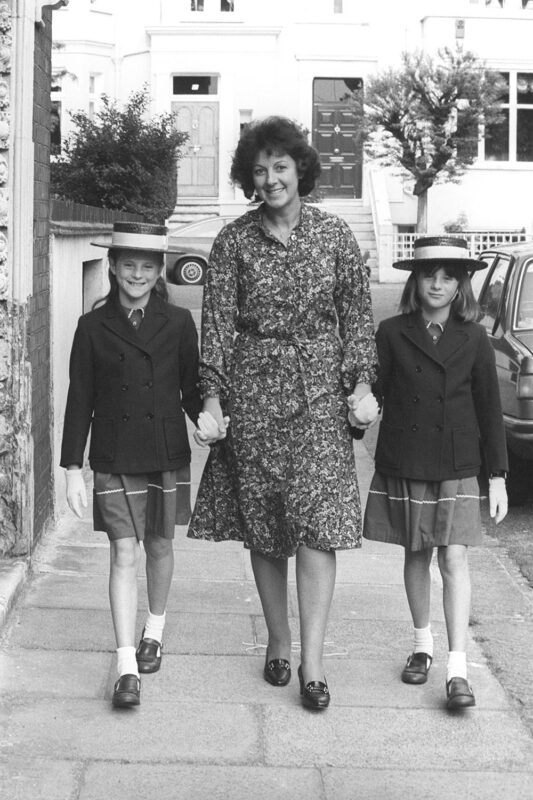
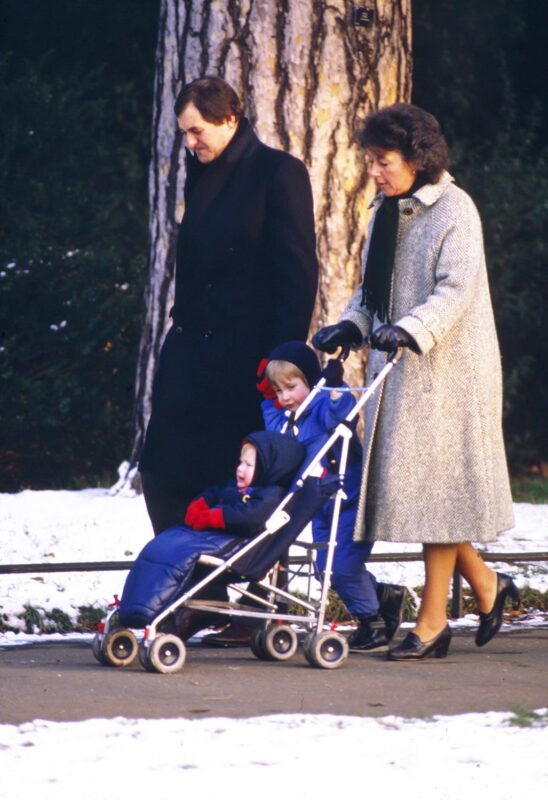
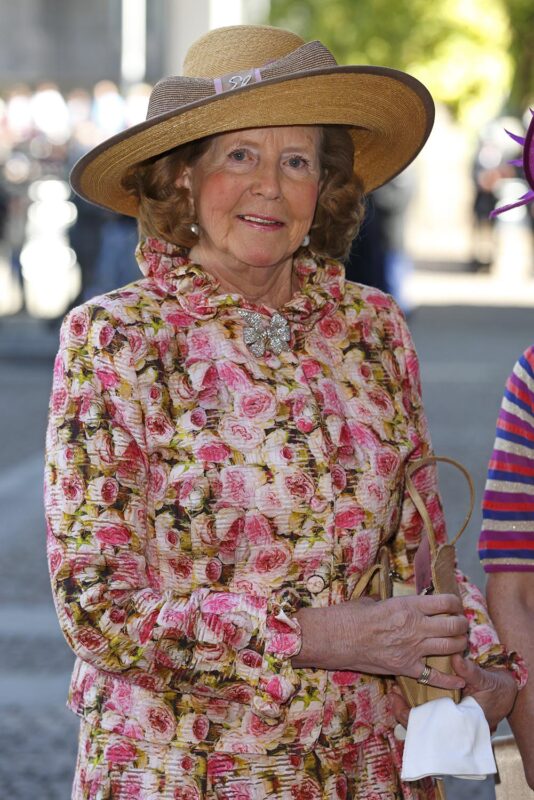
TB: So, here’s an interesting question. Knowing what you know about being close to the Royals. If you could be queen, would you be?
Lady AG: Would I be queen?
TB: Knowing the job up close. You’ve seen it. You know what it’s like.
Lady AG: I think probably not. I think [it’s different] if you’ve been born into it, like The Queen or Princess Anne. I’ve got great admiration for Princess Anne, I thought during the funeral and everything, she was wonderful. But if you come into it like Camilla, no. It’s jolly, jolly hard work. And it’s very boring a lot of the time.
You meet all these people. You’re not allowed to say, “Where’d you come from?” nowadays. The Queen was very, very clever. She always said, “How far have you come?” That was so clever of her. Her usual thing: “Oh, do tell me. How far have you come?”
TB: Yes, that’s a good one. So, everybody who tries to marry into the royal family… it is very difficult isn’t it?
Lady AG: I think Kate has been wonderful. She’s a wonderful wife and mother. Sort of perfect. And she looks divine too.
TB: And you knew her mother, Carol.
Lady AG: I knew them all because Carol [Kate’s mother], they used to come to Mustique. And that’s where Prince William, I suppose, courted Kate. I think they were both very well brought up. Carol was a Mrs. Bennett.
TB: Yes, but she did a very good job with those girls, no doubt about that.
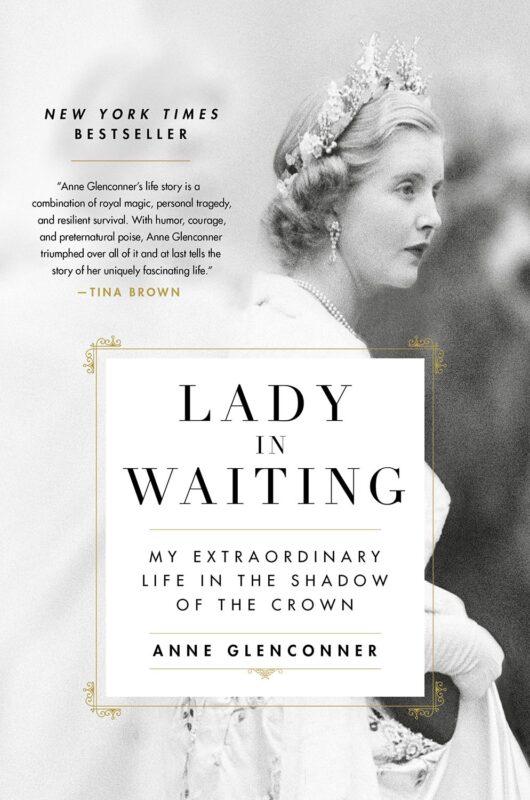
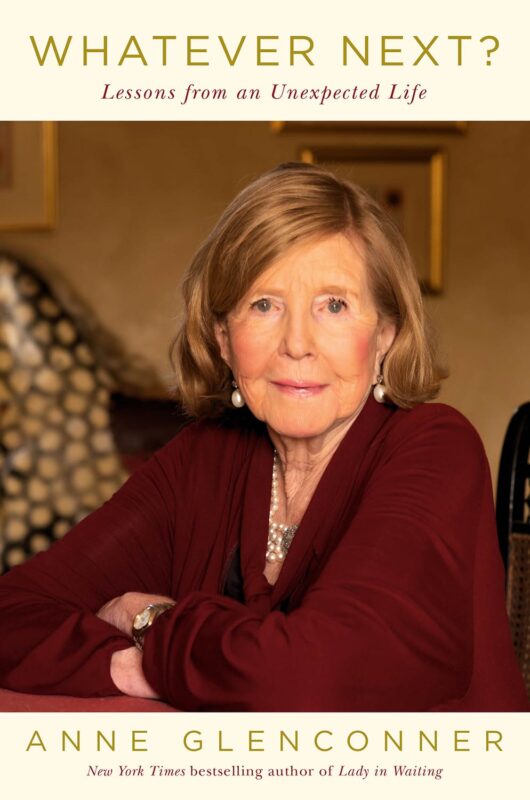
TB: What myth or rumor do you wish would be dispelled about the monarchy? What has everybody got wrong about the monarchy’s meaning to the British people?
Lady AG: Well, I suppose, what people say about The Crown, which is absolute rubbish. I was in it. I only watched it when I was in it.
I just think it’s really difficult, actually, because I’m sure that, I’ve always been told that people in America think it’s absolutely gospel. It’s hardly.
When it started we all thought, “Well, this is going to be rather good!” And then he went completely off, that man who writes it. I think the actual story of the royal family is fascinating. I don’t know why they have to make up all these things.
TB: So what did you think they got most wrong?
Lady AG: I think the Duke of Edinburgh, appallingly.
I thought Claire Foy was brilliant as The Queen. I thought she was the best Queen. I didn’t like [Olivia] Colman. Well, she knew she wasn’t very good either. She said to me, “I’m really not the right person.” But one of the sort of tiny things about her is she shows a lot of gum when she smiles, Olivia. And The Queen, of course, didn’t. And so Olivia was told not to smile. Well, one of the points of The Queen was her ravishing smile, sort of lit up the room.
Also, I minded very much about Princess Margaret because she was always the bad sister; The Queen was the good sister. And Princess Margaret, who did smoke and loved a drink and liked staying up late, was absolutely perfect for the media. So they immediately said, “She’s the bad sister.” I think that was very unfair. If Margaret had been the number one in line, I think she would have been quite a good queen. She would have completely changed because if you’re born into something . . . if she knew she was going to be queen. I think she would have been quite fun, actually. Perhaps more adventurous than The Queen. She’s very intelligent, Princess Margaret. Very well read and all that. The Queen loved her horses and her dogs.
TB: And Margaret loved arts and culture….
One last question. What was a favorite moment with Princess Margaret that made you both laugh out loud?
Lady AG: Well, I do remember being in Australia and staying with Roden Cutler VC [governor of New South Wales], who was far grander than The Queen… I wasn’t allowed to use the main staircase unless I was with Princess Margaret, that sort of thing. At any rate, I was taken aside at one point and asked, “Would Princess Margaret accept a gift? I want to give her a boomerang cover.” Well. I went back to the Princess and told her, “They want to give you a boomerang cover.” And she paused and then said, “Well, how do they know how big my boomerang is?” We could not stop laughing.
Hero image: Lady Anne Glenconner, right, with Princess Margaret, centre, and her husband, Colin, waiting on the jetty at Mustique to greet Queen Elizabeth II in 1977. The Royal yacht Britannia is in the background. Photo by Ron Bell - PA Images/PA Images via Getty Images
